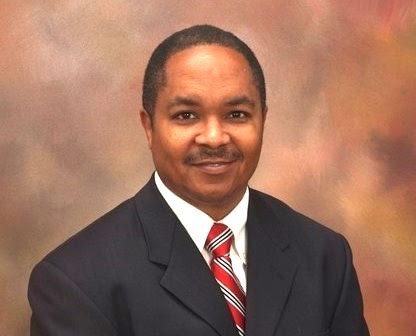CFO: Future of hospital depends on residents
Published 4:38 pm Monday, December 17, 2018

- City of Batesville Logo
Jeremy Weldon
Panola Medical Center Chief Financial Officer Wayne Thompson this week offered analysis of the hospital’s current bankruptcy situation and what Batesville and the surrounding areas can expect from the healthcare facilities going forward.
He repeatedly said the fate and future of the hospital rests squarely on the shoulders of Batesville and Panola County residents, stressing that everyone, not just some, must embrace the healthcare available here for the good of all.
“I know Panola Medical Center’s cash flow, I look at it every day,” Thompson said. “I’m proud to say that this facility stands on its own merit.”
Thompson said he hears the rumors and negativity associated with the hospital’s saga, but knows that Panola Medical Center can be a viable healthcare facility for the county and neighboring counties as well.
Rural hospitals across the nation are closing on an average of 25-30 a year, but Batesville’s does not have to one of those numbers, Thompson said. “If the community wants to keep this hospital then they are going to have to come here. It’s as simple as that.”
The CFO said people should accept the fact that a community can’t keep a hospital available only for the uninsured, or under insured, patients. “It has to be a conscious decision for everyone that lives in the city. You have to decide to come to Panola Medical Facility when you have a healthcare need.”
Thompson acknowledged that many patients with adequate and better insurance coverages automatically go to the Oxford or Southaven hospitals believing those facilities have a better level of care or available technology.
“Ironically, they often see a doctor who also works in the Batesville hospital along with many other doctors. Yet, people believe driving to a larger hospital in some cases means better care,” he said.
Mayor Jerry Autrey agreed with the assessment Thompson made about the hospital. “That’s exactly right. I’ve been saying that we all need to use this hospital. Everybody that goes out there tells me how much they enjoyed the place and they always get good care, just the same as Oxford and the others have.”
Autrey said his family used the emergency room at Panola Medical Center this week and had a good experience. “Everybody at the hospital is friendly and the doctor saw us pretty quick. They took care of us as good as anywhere and we were back home in about four hours.”
Thompson said his advice as an outside expert in the field of hospital administration to the people of Panola County is to immediately embrace the quality healthcare available here and use Panola Medical Center when possible.
“I can say this for sure: Every city that keeps its hospital, uses its hospital,” Thompson said. He shared data and statistical proof that the local medical center has plenty of patient volume and can support a hospital even with the financial burdens of treating large numbers of poorly insured patients.
“I’ve watched this occur several times over the years at different parts of the country, and ultimately it comes down that a community loses its hospital if it doesn’t support it,” he said.
Dr. Michael Havens told the boards of aldermen and supervisors the same thing two weeks ago, emphasizing that he believes the level of care provided by him and his associates rivals that of any hospital in the area.
Havens also said Panola County residents should also appreciate the modern facility that is Panola Medical Center, especially considering some of the older and aging buildings that house hospitals in many small cities and towns.
A bankruptcy judge in Nashville is overseeing the case and possible sale of the Panola Medical Center, but Thompson predicted a transfer of ownership will stretch into the early months of 2019.
He said the general premise that Batesville’s hospital was laden with too much debt assumed at the time of purchase is correct, but that many factors are responsible for a healthcare facility’s success or failure. “When you overpay and set the bar too high from a collateral standpoint then a lot of people are going to suffer. It’s up to the people that live in that area to use the hospital out of habit and then this doesn’t happen.”
Thompson said that rural hospitals like Batesville’s can remain viable despite the negative effects of Obama Care. “What that did was just create another level of indigents. Yes they have so called insurance but the deductible is so high that it makes their insurance not work the paper it’s written on in reality.”
Even with those challenging cases, Thompson said small hospitals have a place in the country’s vast healthcare forest. “You get what the people are willing to support, bottom line.”





